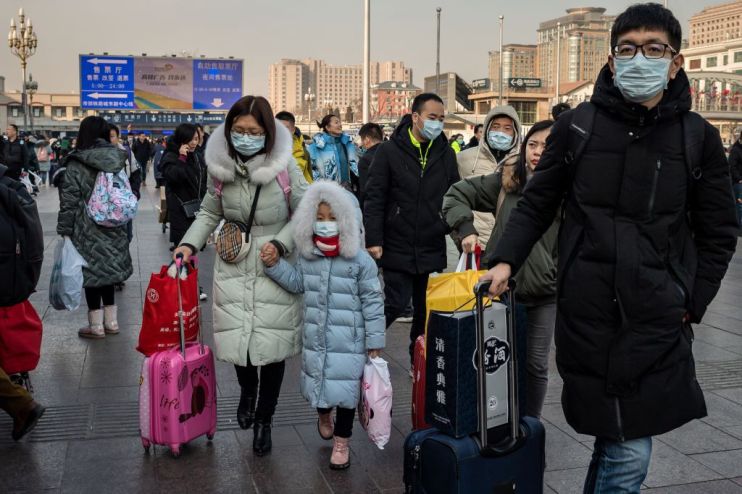FTSE 100 sinks into red as China virus scare hits shares

The FTSE 100 was on track for its biggest fall since early December this morning as investors were rattled by an outbreak of a new strain of coronavirus in China.
The London blue-chip index slipped more than one per cent in early trading, with luxury and travel stocks leading the slide. Burberry fell more than 4.25 per cent, while British Airways owner IAG was down almost three per cent.
London’s stock market had dropped 94 points by midday to drop 1.2 per cent to 7,557 points.
It came after China reported a fourth death from the virus on the eve of the country’s lunar new year holiday. The outbreak has been compared to the deadly spread of Severe Acute Respiratory Syndrome (Sars) virus in 2002.
The FTSE 100 took its cue from Asian stocks such as the Nikkei and the Shanghai Composite, which fell 0.9 per cent and 1.4 per cent respectively.
“Viewed from a market-perspective, anything that can potentially harm the Chinese economic machine is bad news, hence why Asia took a dive overnight,” said Connor Campbell, financial analyst at Spreadex.
However, budget airline Easyjet bucked the trend, rising 4.2 per cent after it lifted its revenue forecast for the first half. Dixons Carphone also performed well despite a drop in mobile revenue.
“Thomas Cook’s exit from the market as well as the grounding of the Boeing 737 Max aircraft and retreat from the short-haul market by Norwegian Airlines has led to a reduction in industry capacity,” said Russ Mould, investment director at AJ Bell.
“In turn this has helped to ease some of the competitive pressures in what still remains a pretty cut-throat market.”
Traders were also reacting to UK employment data, which revealed the strongest job growth in nearly a year.
The figures pushed the pound up 0.3 per cent against the dollar to $1.304 by 10am, weighing on the FTSE 100.
The decision will complicate matters for the Bank of England, which is set to make a decision on whether to cut interest rates at the end of the month.
“Earnings continue to cool but not enough to justify a rate cut,” said Yael Selfin, chief economist at KPMG UK.
“The historically low rate of unemployment is no longer enough to push up pay, as uncertainty and weak productivity take their toll. But with annual regular pay up by 3.4 per cent, despite falling for the fourth month in a row, inflationary pressures remain in the pipeline.”